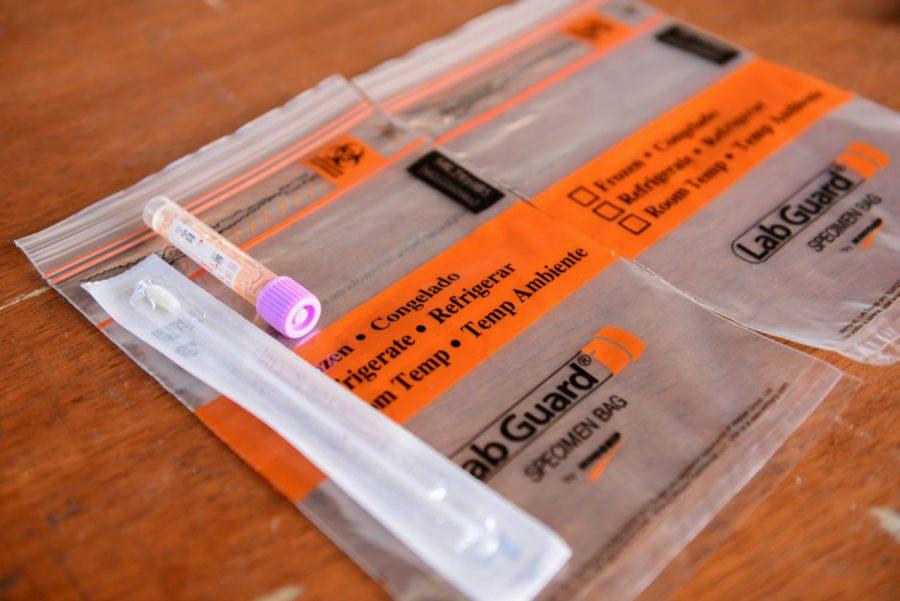Pitt adds 5 new COVID-19 cases since Monday
October 16, 2020
Pitt added five new COVID-19 cases, composed entirely of students, between Monday and Thursday. This follows an increase of 10 new cases, composed of nine students and one employee, between last Friday and Monday.
The test results arrive as Pitt’s Oakland campus prepares to move to the Guarded Risk posture on Monday if case numbers remain low, University officials announced last week. The presidents of both the Student Government Board and the University Senate said they are very concerned about the decision.
This case report also comes about two weeks after the University placed three floors of Litchfield Tower B in quarantine, and the remainder of the building into shelter-in-place status, after an increase in virus cases among building residents in late September and early October. The shelter-in-place order ended after four days, following negative tests of several hundred building residents.
Pitt’s COVID-19 Medical Response Office said students should view the posture change as “an opportunity to experience in-person classes, student activities and dining options.”
“Moving to Guarded Risk is not a green light to let our guard down or a return to pre-pandemic life,” the office said. “Face coverings are still required indoors and outside. Physical distancing and good hand hygiene are necessary. Minimizing the number of close contacts is still essential.”
The office added that social gatherings should still be small.
“Even in Guarded Risk posture, large parties or social gatherings are risky — especially if face coverings and distance are not maintained,” the office said.
Data collected by The Pitt News. Original data collection by Ryan Yang, Online Visual Editor. Archival data by Spotlight PA and the Philadelphia Inquirer. Graph by Jon Moss, Editor-in-Chief.The University has had 316 students and 32 employees test positive since June 26, with 297 students and 31 employees recovered thus far. One of the last seven days have seen no new positive cases, according to data reported by Pitt.
There are 19 students currently in isolation housing, which is reserved for those who have either a confirmed or suspected COVID-19 infection. Pitt has a capacity of 179 beds, with the ability to add 20 more.
Friday’s case report is the 10th since more classes moved in person on Sept. 14. Provost Ann Cudd announced Sept. 9 that faculty members could apply to teach their classes in person if there is a “definable benefit” to in-person instruction and if an instructor’s dean or regional campus president approves teaching plans. Pitt has been using the new Flex@Pitt teaching model, which allows students to experience classes “in person, remotely, synchronously or asynchronously.”
Cudd announced Sept. 30 that the Flex@Pitt model will continue into the spring semester as the pandemic continues, and the spring will have an adjusted schedule.
Pitt has implemented a systematic, random testing strategy, where it has said it will test several hundred students each week on Mondays and Wednesdays. Out of 261 students without COVID-19 symptoms randomly tested Monday, none were positive, slightly decreasing Pitt’s total prevalence rate from 0.38% to 0.36%.
The University has implemented a variety of new policies due to the pandemic, though some community members question whether the safeguards are sufficient. All students were asked to shelter in place for seven days before and after arriving in Oakland, though officials said Pitt would not track whether or not students had completed the shelter-in-place period. Pitt has also planned testing of students to monitor the virus’s spread, required students, faculty and staff to complete COVID-19 training and imposed strict penalties for violations of health guidelines.
Kenyon Bonner, the vice provost and dean of students, said student organizations who host a party or event can face suspension, and students hosting large parties can be suspended. Students living on campus who attend large parties can have their housing suspended for the semester, and students living off campus can be switched to persona non grata status, preventing them from entering University buildings or property.



